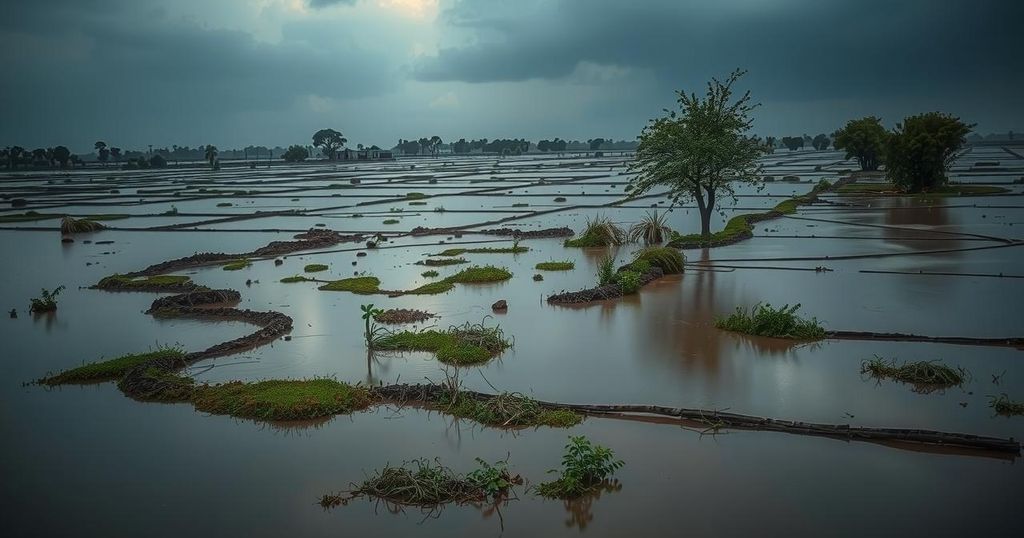Severe Flooding Exacerbates Health Crisis in South Sudan
South Sudan is facing critical flooding that has displaced over 226,000 residents, severely affecting health services and infrastructure across 42 counties. The flooding has compounded an existing humanitarian crisis, with the World Health Organization actively mobilizing resources to address health needs while advocating for long-term solutions to enhance climate resilience in health systems.
Severe flooding in South Sudan has triggered one of the country’s worst humanitarian crises in decades, displacing over 226,000 individuals and submerging homes, infrastructure, and livelihoods. The recent deluge has impacted 42 out of 78 counties, with 58 health facilities inundated and nearly 90 others made inaccessible, further exacerbated by 15 key road closures, hampering connectivity to the capital, Juba. As of October 4, 2024, approximately 890,000 individuals have been affected across the flood-hit regions, highlighting an alarming public health risk amidst already strained healthcare systems due to ongoing conflicts and the influx of refugees from neighboring Sudan. The floods, typically a consequence of the annual rainy season from April to November, have intensified recently due to climate change, contributing to permanent displacements in some areas. This natural disaster compounds the existing health crisis, marked by a rising number of malaria cases, suspected cholera infections, and snakebite incidents. The World Health Organization (WHO) indicates that over 120,000 malaria cases and 31 suspected fatalities have been reported as of late September 2024. Dr. Humphrey Karamagi, WHO Representative in South Sudan, emphasized the heightened vulnerability of the population due to these compounding emergencies, stating the organization’s commitment to ensuring access to essential health services during this crisis. The WHO has mobilized approximately 88 metric tons of emergency health kits containing crucial medical supplies to assist the affected communities, capable of treating over 870,000 individuals. Furthermore, initiatives have been launched to conduct rapid assessments and strengthen the response capacity among health workers. Amid these developments, the WHO continues to collaborate with local authorities to safeguard health facilities and strategically relocate essential medical supplies. The organization is also monitoring the health impacts of the flooding with precision while advocating for sustainable investment and climate-resilient health systems that can withstand future challenges. In the face of climate-related health threats, it is paramount to develop robust infrastructure and systems capable of responding effectively to emerging environmental challenges.
South Sudan has been grappling with significant flooding due to heavy rainfall, worsened by climate change effects, creating an urgent health crisis that is overwhelming existing facilities. The country is already under stress from hosting a large number of refugees from Sudan, which complicates the public health landscape further. With existing infrastructure compromised, health workers and emergency response teams are under significant pressure to manage disease outbreaks and provide care to affected populations amidst logistical challenges. The WHO is active in responding to these crises, highlighting the need for sustainable health systems capable of addressing climate change’s impact on public health.
In conclusion, the severe flooding in South Sudan has devastated numerous communities and intensified the health crisis facing the nation, with hundreds of thousands impacted and healthcare systems stretched beyond capacity. The WHO’s comprehensive response involves distribution of medical supplies, monitoring health conditions, and advocating for sustainable health practices to address both immediate and long-term impacts of climate change on public health. The situation necessitates urgent attention and coordinated efforts from various stakeholders to mitigate the consequences of such environmental disasters.
Original Source: www.afro.who.int




Post Comment